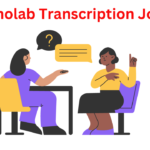Integrating Artificial Intelligence (AI) in content creation has become a game-changer. From automating mundane tasks to enhancing creativity, AI has revolutionized the way content is produced and consumed. Let’s delve into the world of “AI for Content” and explore its evolution, benefits, challenges, and impact on search engine optimization (SEO).
Table of Contents
ToggleDefinition of AI in Content Creation
AI in content creation refers to the utilization of artificial intelligence technologies to generate, curate, or enhance various forms of content, such as articles, videos, images, and music. This involves leveraging algorithms and machine learning techniques to automate tasks traditionally performed by humans, including content generation, editing, and optimization. AI in content creation aims to streamline workflows, improve efficiency, and enhance the quality of content produced, ultimately enabling creators to focus on higher-level tasks while AI handles repetitive or time-consuming processes.
Evolution of AI in Content
The evolution of AI in content creation has been a remarkable journey, marked by significant advancements and innovations. Initially, AI was primarily used for basic tasks like grammar checking and automated content spinning. However, with the rapid development of natural language processing (NLP) and machine learning algorithms, AI capabilities in content creation have grown exponentially.
Early stages saw the emergence of AI-powered tools for content optimization, keyword research, and content personalization. These tools helped content creators enhance their material’s relevance and reach. As AI technology progressed, more sophisticated applications emerged, such as chatbots and virtual assistants, which interacted with users in real-time, providing personalized content recommendations and assistance.
One of the most significant breakthroughs in AI content creation came with the development of generative AI models like OpenAI’s GPT series. These models can understand and generate human-like text, enabling tasks like automated article writing, story generation, and even dialogue creation for films and video games. This advancement revolutionized content creation by automating labor-intensive tasks while maintaining quality and coherence.
Furthermore, AI has expanded into other content formats, including image and video creation. Generative adversarial networks (GANs) and computer vision algorithms allow AI to generate realistic images and videos based on input criteria, opening new possibilities for visual content creation.
In recent years, AI has also been integrated into content distribution and marketing strategies. AI-powered analytics tools provide insights into audience behavior, helping creators tailor their content and marketing efforts for maximum impact.
Looking ahead, the evolution of AI in content creation is expected to continue, with advancements in areas like emotion recognition, content personalization, and even virtual reality content creation. As AI technologies become more sophisticated and accessible, they will play an increasingly integral role in shaping the future of content creation across various mediums.
Benefits of AI in Content Creation.
The benefits of AI in content creation are manifold and have transformed the way content is produced, distributed, and consumed. Some of the key advantages include:
Efficiency: AI-powered tools automate repetitive tasks, such as grammar checking, content optimization, and even content generation itself. This streamlines workflows, saves time, and allows content creators to focus on higher-value tasks.
Quality Enhancement: AI algorithms can analyze vast amounts of data to identify trends, preferences, and patterns, enabling content creators to produce more relevant and engaging material. Additionally, AI-generated content can maintain high quality, consistency, and coherence, contributing to overall content excellence.
Personalization: AI algorithms can analyze user data and behavior to deliver personalized content recommendations and experiences. This enhances user engagement and satisfaction by providing content that aligns with individual preferences and interests.
Scalability: AI-driven content creation enables scalability by automating processes that were previously limited by human capacity. This allows organizations to produce and distribute large volumes of content efficiently, catering to diverse audiences across multiple channels.
Cost-Effectiveness: By automating tasks and increasing efficiency, AI reduces the costs associated with content creation, editing, and distribution. This makes content creation more accessible to organizations of all sizes and budgets.
Enhanced Creativity: AI tools can spark creativity by providing inspiration, generating ideas, and suggesting novel approaches to content creation. Additionally, AI-generated content can serve as a starting point for further refinement and innovation by human creators.
Data-Driven Insights: AI-powered analytics tools provide valuable insights into audience behavior, content performance, and market trends. This data-driven approach enables content creators to make informed decisions, optimize content strategies, and maximize the impact of their content.
Multimedia Capabilities: AI is not limited to text-based content creation but extends to other formats like images, videos, and even music. Advanced AI algorithms can generate and enhance multimedia content, opening up new possibilities for creative expression and storytelling.
Overall, the integration of AI in content creation offers numerous benefits, ranging from increased efficiency and scalability to enhanced quality, personalization, and creativity. As AI technologies continue to evolve, they will undoubtedly play a central role in shaping the future of content creation across various industries and sectors.
Challenges and Concerns
While AI brings numerous benefits to content creation, there are also several challenges and concerns associated with its implementation:
Quality Control: AI-generated content may lack the nuanced understanding, creativity, and contextual awareness of human creators, leading to inconsistencies, errors, or unintended biases. Maintaining quality standards and ensuring content authenticity can be challenging in AI-driven workflows.
Ethical Considerations: AI algorithms can inadvertently perpetuate biases present in training data, leading to the generation of discriminatory or offensive content. Additionally, the use of AI in content creation raises ethical concerns regarding authorship, ownership, and accountability, particularly when it comes to copyright and intellectual property rights.
Overreliance on Automation: Overdependence on AI-powered tools may lead to a loss of human creativity, intuition, and judgment in content creation processes. Furthermore, excessive automation could result in a homogenization of content, reducing diversity and originality in the creative landscape.
Privacy and Data Security: AI-driven content creation often relies on large volumes of user data for personalization and targeting purposes. However, concerns arise regarding the privacy and security of this data, as well as the potential misuse or unauthorized access to sensitive information by malicious actors.
Job Displacement: The automation of content creation tasks through AI may lead to job displacement for human writers, editors, and other content creators. While AI can enhance efficiency and productivity, it also raises concerns about unemployment and the need for reskilling and upskilling initiatives to adapt to evolving job roles.
Algorithmic Bias and Fairness: AI algorithms may exhibit biases based on the characteristics of training data or underlying assumptions, leading to unfair treatment or discrimination against certain individuals or groups. Addressing algorithmic bias and ensuring fairness in AI-driven content creation processes is essential to promoting inclusivity and diversity.
Regulatory Compliance: The use of AI in content creation may raise regulatory challenges related to transparency, accountability, and compliance with existing laws and regulations, such as data protection and consumer privacy regulations.
Technological Limitations: Despite advancements, AI technologies still have limitations in understanding context, nuance, and cultural sensitivities, particularly in complex or subjective content domains. Overcoming these technological challenges is crucial for ensuring the effectiveness and reliability of AI-driven content creation solutions.
Addressing these challenges and concerns requires a holistic approach that combines technological innovation with ethical, legal, and regulatory frameworks to promote responsible and sustainable AI adoption in content creation.
How AI Enhances SEO
AI enhances SEO (Search Engine Optimization) in several ways:
Content Optimization: AI-powered tools can analyze search trends, user behavior, and competitor strategies to identify relevant keywords and optimize content accordingly. Natural language processing (NLP) algorithms enable content creators to produce high-quality, keyword-rich content that resonates with both users and search engines.
On-Page SEO: AI algorithms can automatically audit web pages for on-page SEO factors such as title tags, meta descriptions, headings, and image alt attributes. These tools provide recommendations for optimization based on SEO best practices, improving the visibility and ranking of web pages in search engine results pages (SERPs).
Semantic Search: AI-driven search engines, like Google’s RankBrain, utilize semantic search algorithms to understand the context and intent behind user queries. By analyzing language patterns and user behavior, AI can deliver more relevant search results, even for complex or ambiguous queries, enhancing the user experience and increasing click-through rates.
Natural Language Understanding: AI-powered chatbots and voice assistants leverage natural language understanding (NLU) to interpret user queries and provide accurate responses. By understanding user intent and context, these AI-driven interfaces can guide users to relevant content, products, or services, improving engagement and conversion rates.
Structured Data Markup: AI tools can automatically generate and implement structured data markup, such as Schema.org markup, to provide search engines with additional context about web page content. This structured data helps search engines better understand and index web page content, leading to enhanced visibility and rich snippet display in SERPs.
Predictive Analytics: AI-powered analytics platforms can analyze historical data and predict future trends in search engine algorithms, user behavior, and market dynamics. By leveraging predictive analytics, SEO professionals can anticipate changes and proactively optimize their strategies to maintain or improve search rankings and organic traffic.
Automated Link Building: AI algorithms can analyze link profiles, identify relevant opportunities for link building, and even automate outreach processes to acquire high-quality backlinks. By streamlining link-building efforts, AI enhances the authority and credibility of web pages, positively impacting search engine rankings.
Personalization: AI-driven personalization algorithms can tailor search results, recommendations, and content based on individual user preferences, search history, and demographic information. Personalized search experiences improve user satisfaction and engagement, leading to higher rankings and increased organic traffic over time.
Popular AI Tools for Content Creation
Several popular AI tools for content creation include:
OpenAI GPT (Generative Pre-trained Transformer): OpenAI’s GPT series, including GPT-3, GPT-4, etc., are among the most advanced natural language processing models available. These models can generate human-like text based on prompts provided by users, making them versatile tools for content creation, including writing articles, stories, product descriptions, and more.
Copy.ai: Copy.ai is an AI-powered copywriting tool that uses GPT-3 to generate various types of content, such as ad copy, social media posts, blog posts, and product descriptions. Users can input prompts or keywords, and the tool generates relevant, high-quality text in seconds.
ShortlyAI: ShortlyAI is another AI-powered writing tool that leverages GPT-3 to assist users in generating content quickly and efficiently. It can be used for writing blog posts, emails, essays, and other types of content by providing suggestions and completing sentences based on user input.
MarketMuse: MarketMuse is an AI-driven content marketing platform that uses natural language processing to analyze content and provide actionable insights for improving SEO, content quality, and relevance. It helps content creators optimize their content strategy, identify gaps, and generate ideas for new content.
Grammarly: Grammarly is an AI-powered writing assistant that helps users improve their writing by detecting grammar, spelling, punctuation, and style errors. It offers suggestions for corrections and enhancements, making it a valuable tool for ensuring clarity, coherence, and professionalism in written content.
Wordtune: Wordtune is an AI-powered writing tool that provides suggestions for rewriting and refining sentences to improve clarity, tone, and style. It offers alternative phrasings, word choices, and structure adjustments, helping users enhance the quality and effectiveness of their writing.
Canva: Canva is a graphic design platform that incorporates AI-powered features for creating visually appealing content, including social media graphics, presentations, posters, and infographics. Its design templates, image recognition, and layout suggestions simplify the content creation process for users without extensive design experience.
Adobe Sensei: Adobe Sensei is Adobe’s AI and machine learning platform that powers various creative tools, including Adobe Photoshop, Illustrator, and Premiere Pro. It offers features such as auto-tagging, image recognition, content-aware fill, and smart editing tools, enhancing productivity and creativity in content creation workflows.
These are just a few examples of popular AI tools for content creation, each offering unique features and capabilities to assist content creators in producing high-quality, engaging content efficiently.
The Future of AI in Content Creation
The future of AI in content creation holds immense potential for transformative advancements and innovations across various industries. Some key trends and developments that are likely to shape the future of AI in content creation include:
Hyper-Personalization: AI algorithms will continue to evolve to deliver hyper-personalized content experiences tailored to individual preferences, behavior, and context. This will involve leveraging data analytics, machine learning, and natural language processing to create highly relevant and engaging content that resonates with users on a personal level.
Multimodal Content Generation: Future AI models will be capable of generating and enhancing content across multiple modalities, including text, images, videos, and audio. This will enable content creators to produce more immersive, interactive, and engaging experiences that cater to diverse audience preferences and consumption habits.
Real-Time Content Creation and Distribution: AI-driven content creation platforms will enable real-time content generation, curation, and distribution, allowing organizations to respond quickly to emerging trends, events, and user interactions. This will empower content creators to deliver timely and relevant content that captures audience attention and drives engagement.
AI-Powered Collaboration and Co-Creation: AI tools will facilitate collaboration and co-creation among human creators and AI systems, enabling synergistic partnerships that combine human creativity and intuition with AI’s computational power and analytical capabilities. This collaborative approach will result in the development of more innovative and impactful content across various domains.
Ethical and Responsible AI Use: As AI technologies become more pervasive in content creation, there will be an increased emphasis on ethical and responsible AI use to address concerns related to bias, fairness, transparency, and accountability. Organizations will need to implement robust governance frameworks, guidelines, and standards to ensure that AI-driven content creation processes adhere to ethical principles and regulatory requirements.
AI-Enhanced Creativity and Innovation: AI will catalyze creativity and innovation in content creation by providing inspiration, generating novel ideas, and facilitating experimentation with new formats and styles. AI-powered tools will empower content creators to push the boundaries of creativity, enabling the production of content that captivates audiences and drives meaningful engagement.
Augmented Content Creation Workflows: AI will augment and enhance content creation workflows by automating repetitive tasks, providing intelligent recommendations, and enabling seamless integration with existing tools and platforms. This will enable content creators to focus their time and energy on tasks that require human creativity, intuition, and expertise, resulting in more efficient and effective content production processes.
Overall, the future of AI in content creation holds tremendous promise for revolutionizing how content is created, distributed, and consumed. By harnessing the power of AI technologies, content creators will be able to unlock new levels of creativity, personalization, and innovation, ushering in a new era of content experiences that enrich and inspire audiences around the world.



